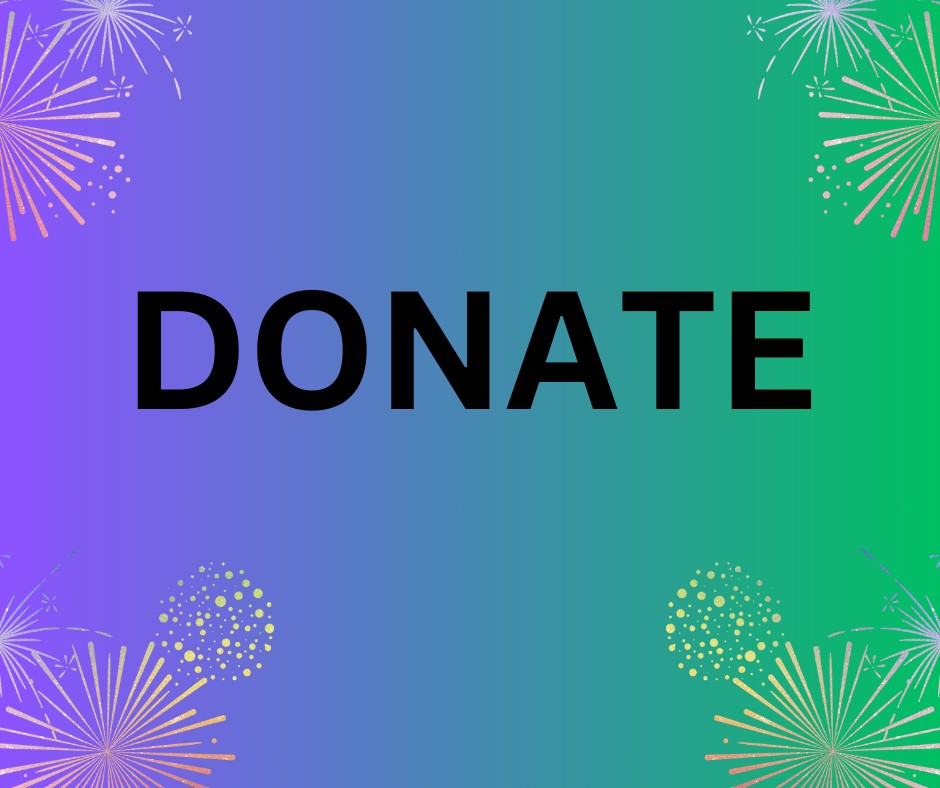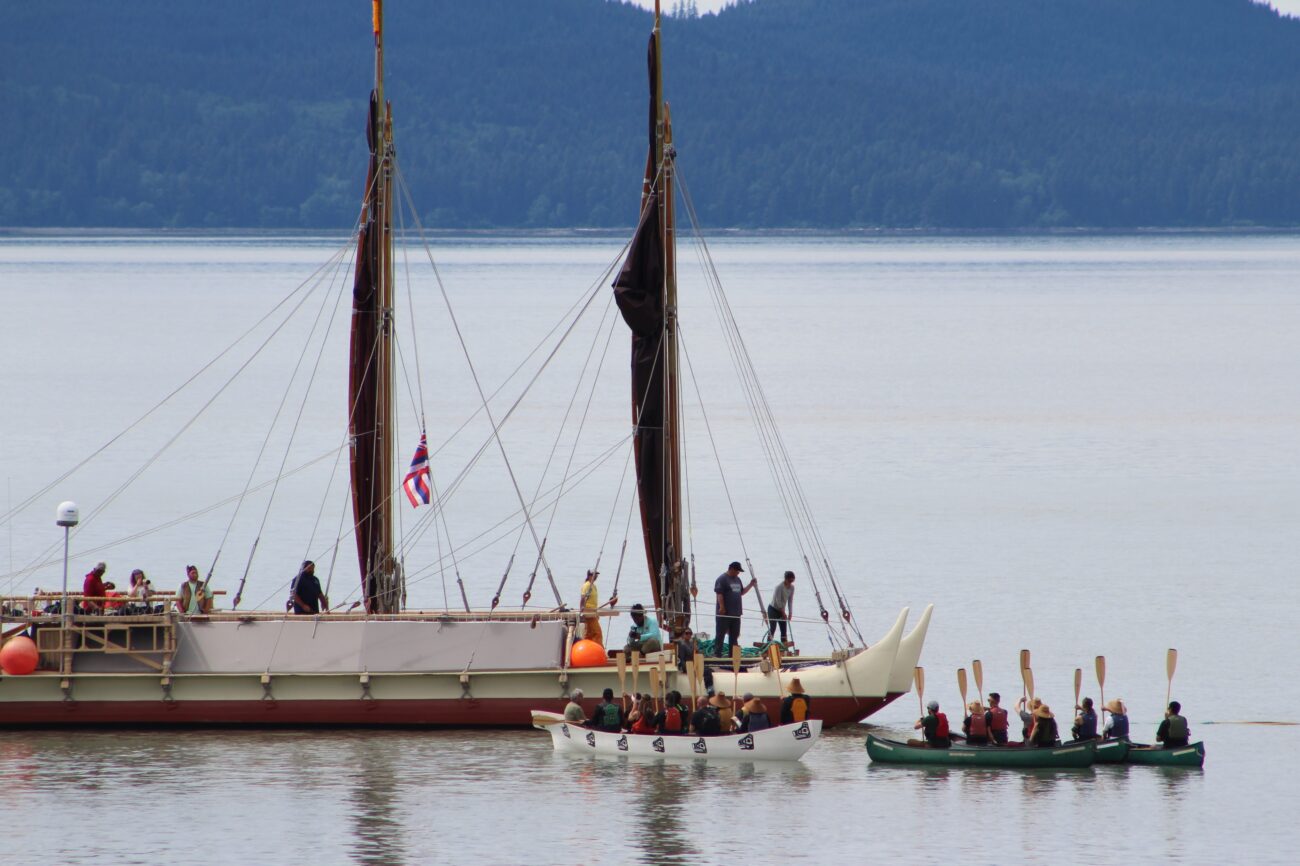
(Sage Smiley / KSTK)
The Polynesian voyaging canoe Hōkūle‘a traveled from Petersburg to Wrangell on Tuesday (June 27) as part of its journey through Southeast Alaska. A day of festivities and exchange ensued as two cultures came together to honor one another.
Find some additional photos at the end of this article.
Hundreds of people have gathered along rocky Petroglyph Beach at the northern tip of Wrangell Island, watching the slow approach of the twin-hulled Hōkūle‘a voyaging canoe. It’s been towed through the Wrangell Narrows by its companion vessel, the Kōlea.
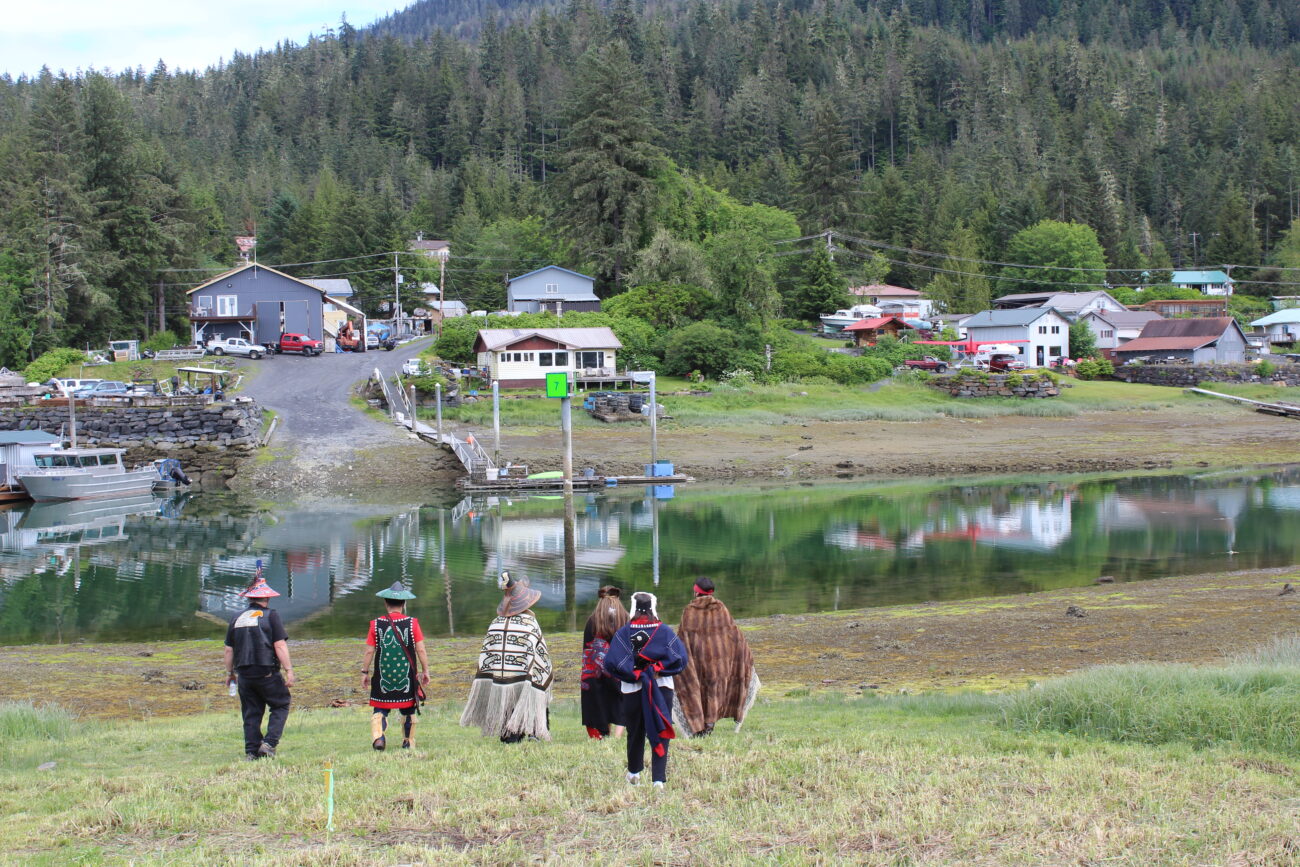
(Sage Smiley / KSTK)
Floating in front of the beach, the voyagers announce their arrival through the kani o ka pū, or blowing of the conch shell. There are four blasts, one for each cardinal direction.
Wrangell canoes paddle out to meet the newcomers, and inspect the vessel before raising their paddles in greeting, and escorting the Hōkūle‘a and Kōlea to the harbor.
Back in the harbor, K̲áa náawu Tlein John Martin of the Sik’nax̲.ádi clan summed up the experience of greeting the twin-hulled canoe from his place in the stern with Wrangell tribal members.
“It’s been exciting for a week preparing for this,” Martin says, “And each time we’re running those laps up and down, and you’re wondering what you’re gonna face when you get out there… it’s even more.”
He continues: “We were at Petroglyph Beach waiting and he started blowing the conch shell and I said, ‘Yeah, this is what it’s about.’ We did our survey of the vessel assuming that in the days gone by, if they didn’t recognize that they’d better check it out. So silently paddled around it, checked it out to see what it was, realized. And then we saluted and after a little exchange of words, got underway and led them into the harbor.”
Once tied up to Wrangell’s seaplane float, the visiting crew left the Hōkūle‘a and paddled to Chief Shakes Island to ask permission to land at the X’átgu Hít (Mudshark Clan House) of the Naanyaa.aayí.
Wrangell clan leaders granted permission. And, to demonstrate hospitality, offered the voyagers water. That was especially meaningful to Captain Mark Ellis.
“We thank you for the water,” Ellis said in the clan house. “The water is so valuable for us. In Hawaii, water is ‘wai’ and wealth is ‘waiwai’ so double water is wealth. And so it’s so important to us – the value of water.”
Inside the cedar clan house, clans of the Yéil (Raven) and Ch’áak’ / G̲ooch (Eagle / Wolf) moieties shared songs, dances and stories. Some of the boards making up the sides of the house had been removed to allow people to see inside. They explained the importance of balance to Lingít culture, making sure the two moieties were both represented.
In response, the Hōkūle‘a crew shared songs and a dance of their own, the Hōkūle‘a Ha‘a, which tells the story of the voyagers and building their canoe.
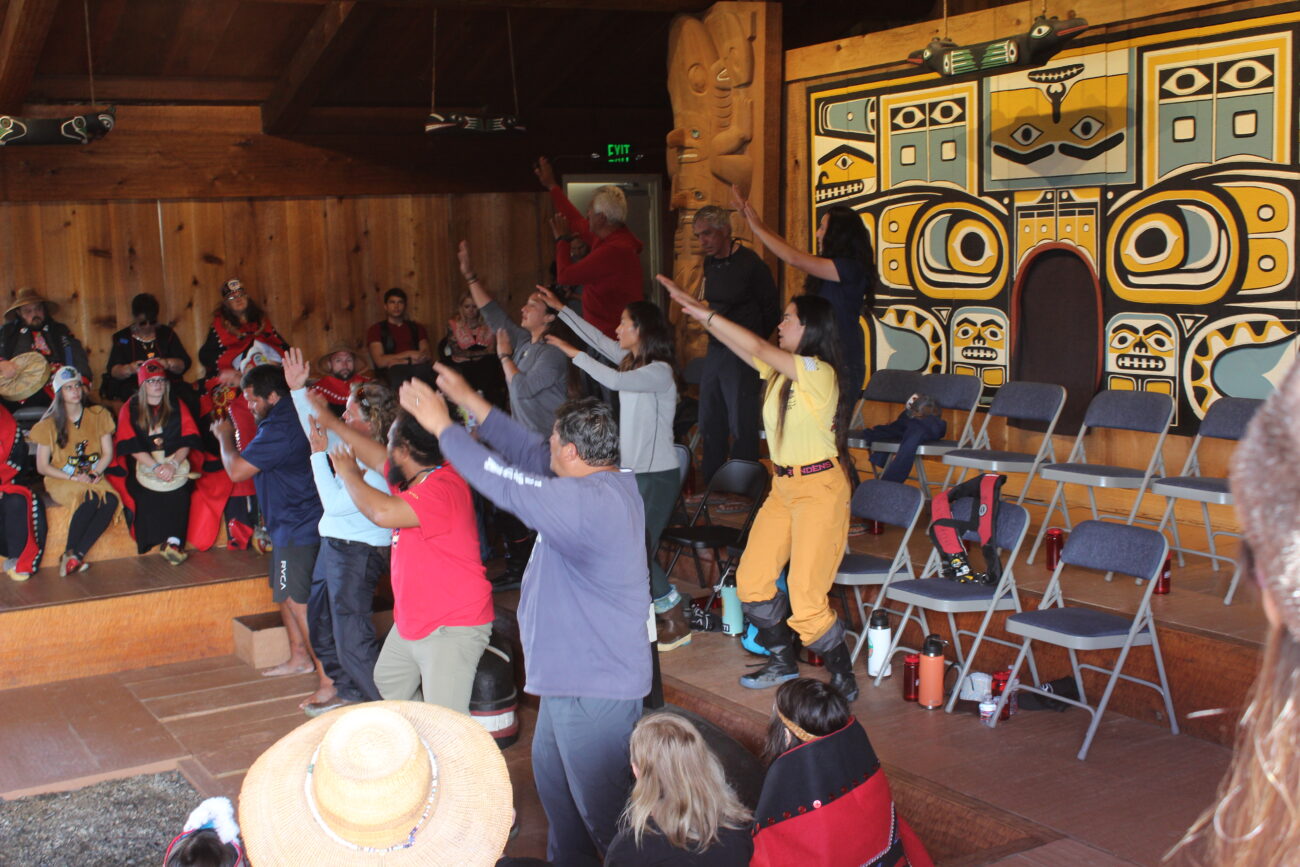
(Sage Smiley / KSTK)
“I think the last time we were in town was about 30 years ago,” says Lehua Kamalu, a crewmember and Polynesian Voyaging Society program manager. People have been mentioning the last voyage all day. She says it was both a joy and a relief to arrive in Wrangell.
“The sun came out as we came through the Narrows,” Kamalu says. “That was actually one of the most concerning parts of our trip, because we’re not used to going down very narrow passageways like that with our very large sailing canoes. [But] it was really beautiful, saw some eagles along the way, it was just stunning. And then to open up and see the village and the town and all of the people standing and waiting. It was such a warm welcome all the way in to paddling ashore.”
Kamalu says it doesn’t get monotonous visiting communities back to back throughout Southeast Alaska.
“Every community has such a unique spirit and way about how they like to do things and what they share and how they do it,” she says, “And so every time it’s like the first time.”
In the evening, tables at the community’s civic center overflowed with salmon, halibut, black cod and shrimp – donations from the Wrangell community to honor the Hōkūle‘a crew. Trays of fry bread weaved through the crowd.
Continuing the cultural exchange, Wrangell leaders shared important points from Wrangell’s history, from ancient movement of clans to the fight for Alaska Native suffrage that started on the island, Wrangell’s continued status as one of the five ‘Landless’ Native communities, and the ongoing push against transboundary mining projects that threaten sacred salmon habitat.
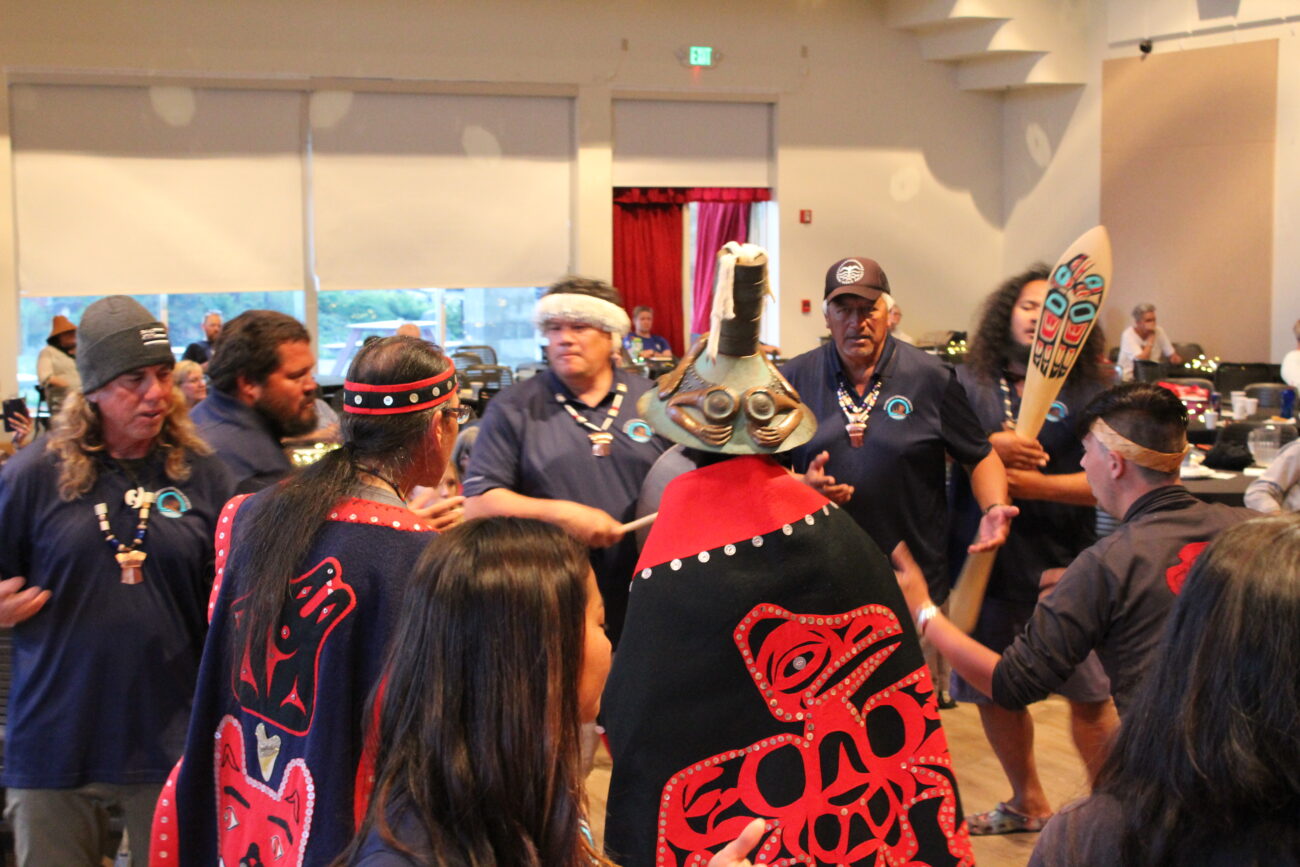
(Sage Smiley / KSTK)
One of the many songs and dances Wrangell clans performed was one known as the blanket dance, introduced by Aak’wtaatseen Mike Hoyt of the Teeyhíttaan clan.
“We’re matrilineal people,” Hoyt explained, “we identify by who our mothers are. This is one of those opportunities where you get to dance for your fathers and show your pride. And one way we do that is we come up to this blanket right here, drop down some money to show our love and our pride like that.”
As each clan was called, dancers in regalia and audience members danced up to lay money on the blanket – in all, the song raised more than $900 for the Hōkūle‘a’s journey.
Community members and Wrangell’s tribe also presented the crew with handmade tináa necklaces – copper shields representing wealth – and devil’s club beads, a handmade paddle, elk hide drum, and a woven raven’s tail headband.
“We know about the balance,” said Hōkūle‘a Captain Mark Ellis Ellis. “You had your side, so we’re gonna do some dancing as well.”
He introduced his own crew’s Hawaiian and Tahitian dances, and the two songs the crew sang for the community. One was Oli Mahalo, a song of gratitude.
“Just a mahalo to thank you for everything that you have done for us,” Ellis said. “It’s just incredible. It’s just incredible and believe me, I’m lost for words, we’re so grateful for all that you guys have to make it possible for us to come here and then also now you’re showering us with gifts… it’s beyond. When we say piha in Hawaii it’s like you’re so full, so it’s mahalo piha. The fullness of this thankfulness that you give us, just like how our stomachs are opu, so full that it’s bulging out.”
From Wrangell, the Hōkūle‘a crew travels south to Ketchikan and communities throughout Prince of Wales Island before venturing into the wider Pacific on their four-year, 40,000-mile journey, Moananuiākea – a journey for the Earth.
Get in touch with KSTK at news@kstk.org or (907) 874-2345.
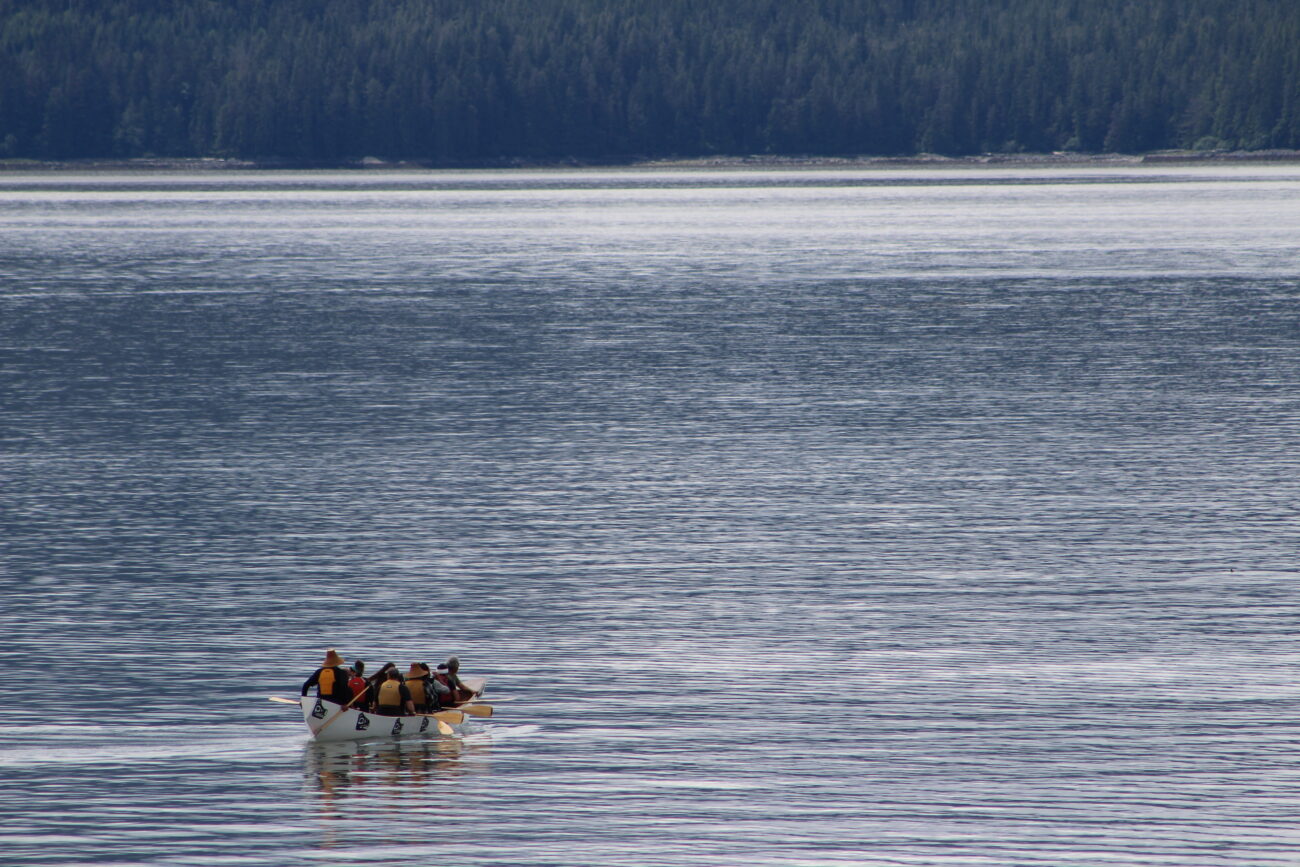
(Sage Smiley / KSTK)
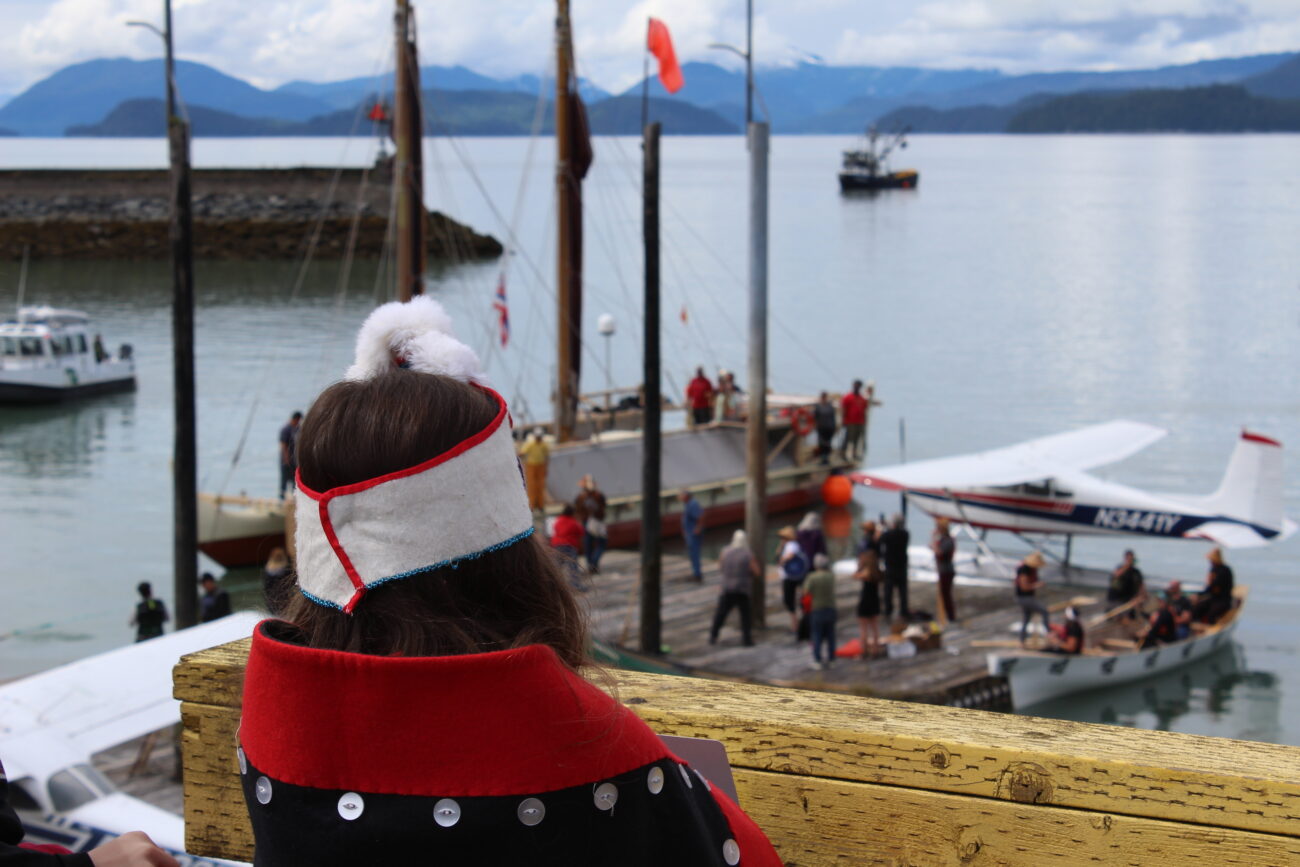
(Sage Smiley / KSTK)
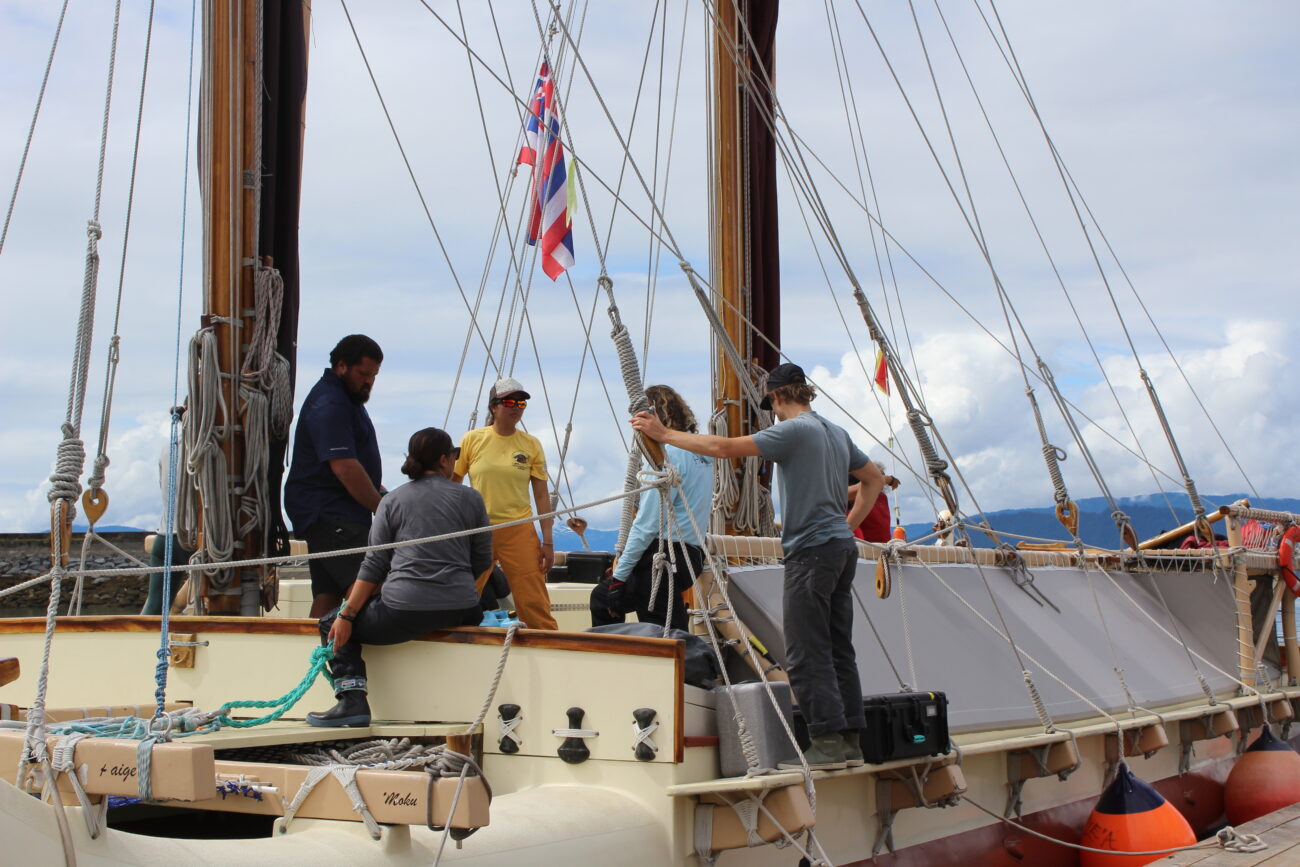
(Sage Smiley / KSTK)
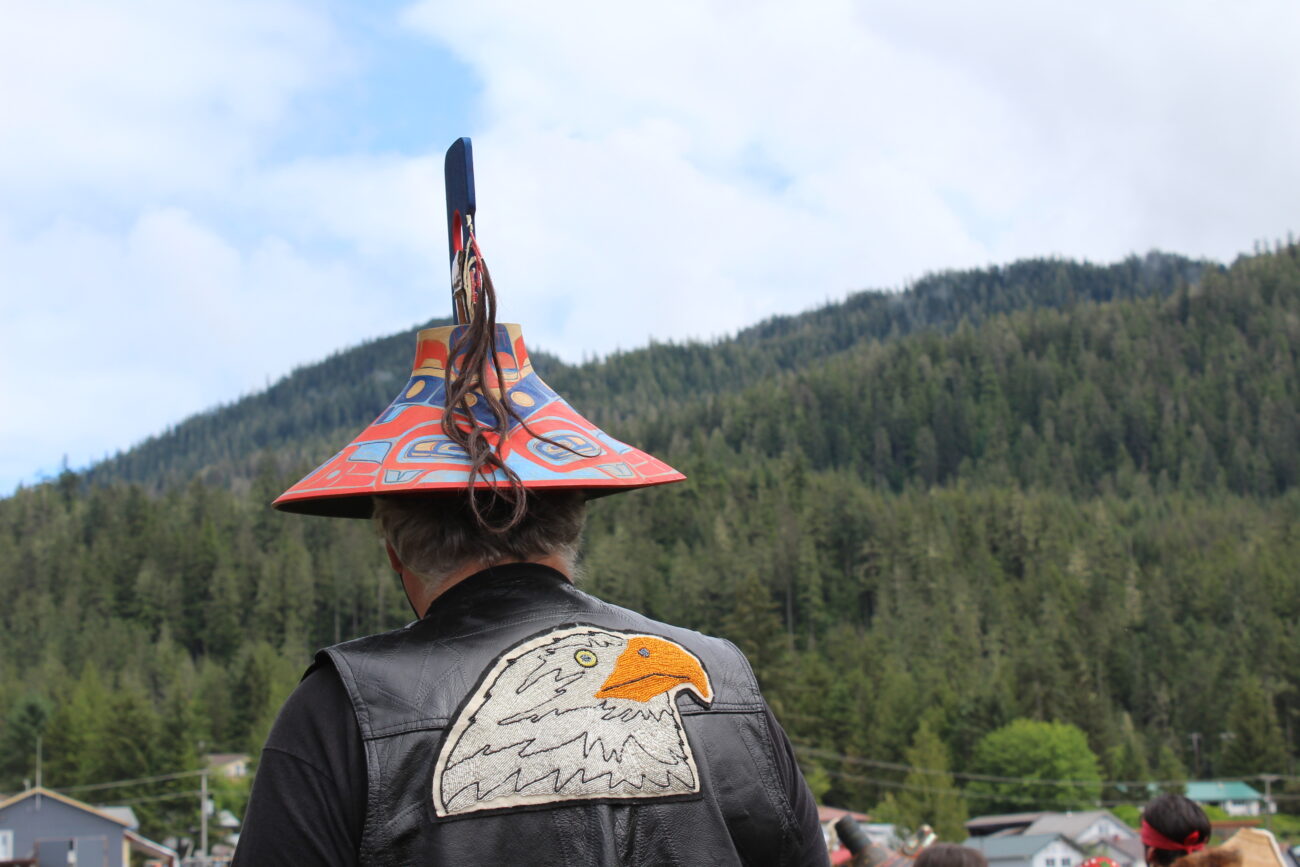
(Sage Smiley / KSTK)


